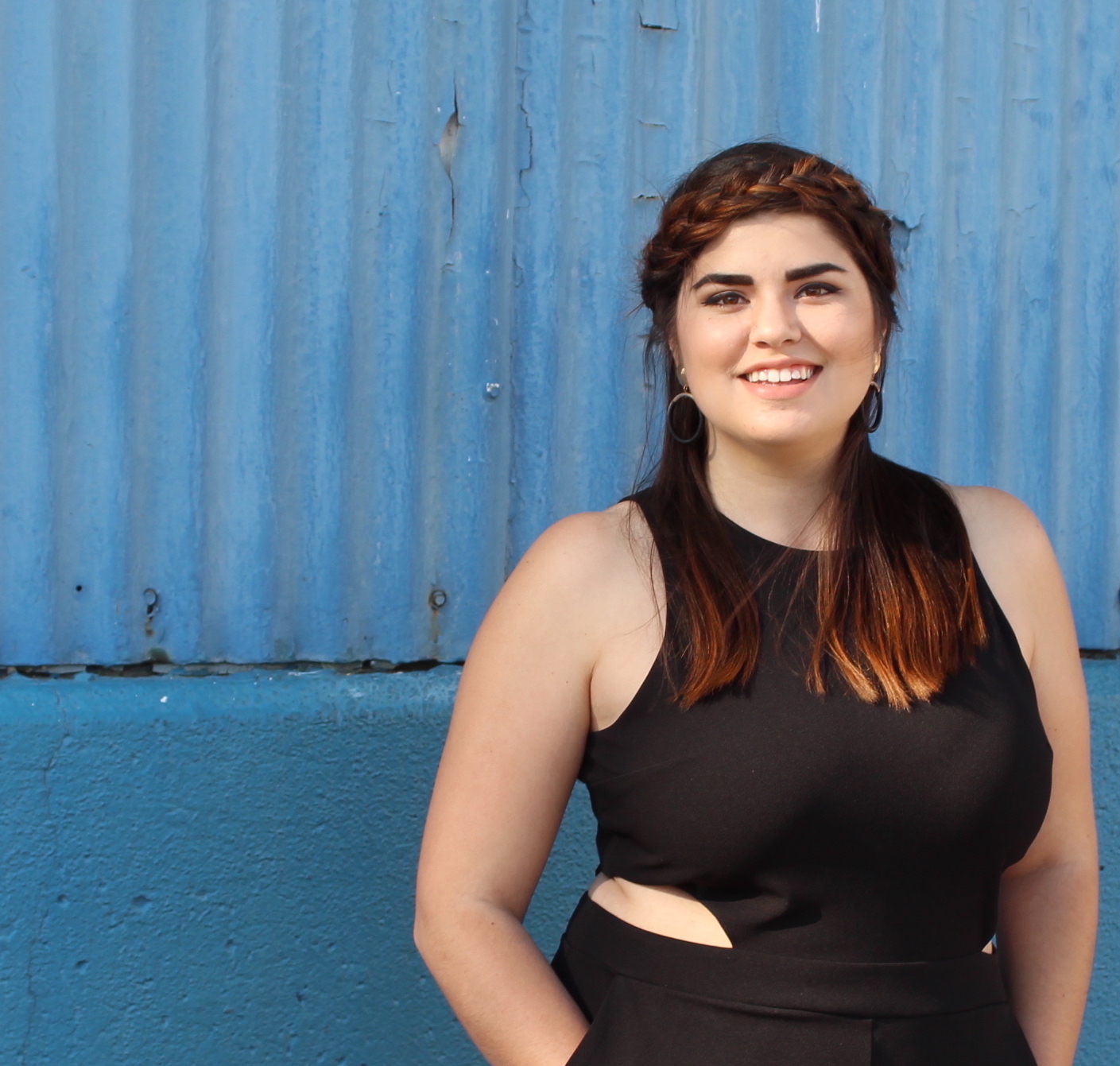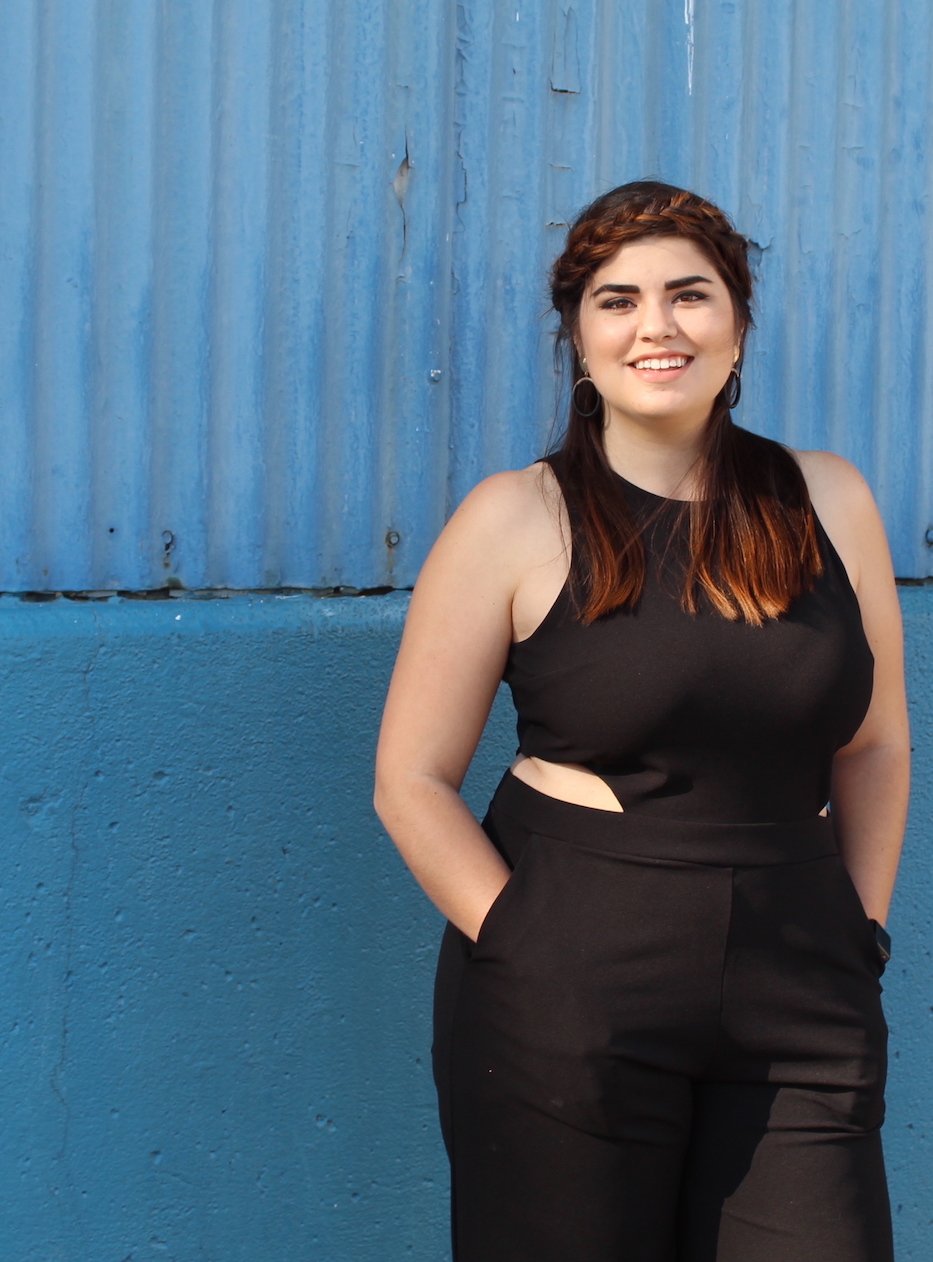
Long Wharf Theatre | Arts & Culture | Theater | Census 2020 | COVID-19

| Bo Suh Photo. |
This is part of a series of interviews with New Haven artists about the U.S. Census. In installments, artists answer the same questions about the Census, which determines the amount of federal aid allocated to New Haven. To read more of these interviews, and learn about the role artists are playing in New Haven’s census effort, check out the Census 2020 tag.
Hope Chávez filled out the census twice. She thought her March submission went through, until she received another notice in September urging her to complete it. She filed again to make sure she was accounted for.
Multiple submissions from a household will not throw off the data, as the duplicates from the same household are discarded. Receiving multiple notices or in person visits are not uncommon. Census field workers may conduct follow up visits to verify information.
Chávez is the artistic producer at Long Wharf Theatre, where she has most recently been involved with Play At Home, a collaborative initiative launched in April to facilitate free, scalable theater performance and keep artists financially afloat during COVID-19. In July, Long Wharf streamed the premiere of Zoomy Zoomy Kill Kill: A Horror Story For A World In Quarantine. The organization will kick off its 2020-2021 season, One City, Many Stages, on Sept. 16.
The U.S. Census Bureau has announced that it will stop counting census respondents on Sept. 30, a month earlier than previously planned. Any mailed in responses must arrive by Oct. 7 to be considered. Held every 10 years and mandated by the U.S. Constitution, the census is intended to count every person in the country and collect data for the proper allocation of federal funds and drawing of legislative districts. In 2002, the state lost a representative in its fifth congressional district following a lower count on the 2000 census.
It also determines how much money each state receives from the federal government. In other words, it directly impacts New Haven’s access to Medicaid, Medicare, Head Start early childhood education, Supplemental Nutrition Assistance Program (SNAP) food benefits, and other essential federal benefits programs.
New Haven leaves roughly $2,800 on the table for every person not counted. In 2010, some 40,000 New Haveners were left out. In 2020, Mayor Justin Elicker has expressed a concern that undocumented immigrants, fearful of the Trump administration, would not fill out the census.
Have you completed the census?
Yes I have.
When did you complete it?
So there was actually a little bit of confusion for me around this. I remember there being a deadline in March for the census, so I went online and I completed that form and then someone came to my house and I missed them and they left a note on my door saying that we had not completed the census. I went online, actually just a couple of days ago, and did it. I think they were two different things, but I completed the census.
Have you ever had confusion with previous censuses or things of that nature?
Not that I can recall now, aside from the race confusion.
How do you identify?
So I identify as a queer, light-skin Latina who grew up in in Texas and has lived most of my life on the East Coast. On the census I'm identifying as female. I can't remember exactly how they framed the question: Are you Hispanic or Latino? And I said yes to that, and then they go to race and identify as white, and then another I filled in Latinx. Gender is also not well represented in the census.
Aside from the trouble with race, is there any other part you struggled with?
Not for myself personally. Race was just sort of a big one for me, especially being biracial. That's always a point of confusion when it comes to surveys, especially government surveys. I certainly felt a lot of frustration with how people I know must be struggling with differences, but other than that I was able to accurately self-identity.
Do you remember what it was like to fill out your very first census?
Barely. I remember it being sort of a nonevent for me. I didn't think about it very hard. I was in college at the time so I just sort of did what I was told.
How has your thinking about the census change since you last filled it out?
My social and political views have changed quite a lot in the last 10 years. My awareness of myself and others, particularly marginalized communities, like folks who are undocumented and folks who are trans and binary, folks like myself who are mixed-race. I understand these things more from a personal perspective and from a data perspective. I listen to a lot of podcasts and [read a lot of] articles about how this data informs all of the various ways in which our communities get funding and even gerrymandering.
I also understand the fear of filling it out. I definitely considered it a sort of rote action. Now I understand so much more about why it might be intimidating for someone to fill it out, both because they can't identify correctly, and because there might be some fear about how the information is used. It feels more important to me, regardless of how I think these systems are steeped in racism and sexism, homophobia and transphobia. Living in a democracy means that being counted matters. It matters to all the decisions that our elected officials and non-elected officials make.
Do you think there's a distrust around the census? Rumor you heard from family or friends?
I remember last year when all the news was happening about whether or not there would be a question about immigration status on the census. I remember reading all these news articles and having conversations with friends and colleagues about it. I know many undocumented folks myself, and I worried for them. Most of them are not going to be filling out the census.
I also am aware of communities where there is a general distrust in the government. I have a couple of friends who are more connected to communities that are experiencing poverty or homelessness, and they sort of scoff at the idea of filling out the census. Like, “Yeah, no I'm not going to give the government that information,” feeling like they can't trust how it will be used.
Communities of color, communities in poverty, people at the margins feel like it doesn't—it won't—actually serve them. It will continue to only serve those who are already at the center.
What does your family or immediate friend group think of the census? How is it talked inter-generationally?
My nuclear family is very small. I have a sister and my parents. They very much still think of it as a thing you do. You know, they feel it is a civic responsibility like voting. I remember earlier in the spring, my father reminding me of a deadline for it and that was about it, but otherwise we haven't really talked about it.
However, within my very close friend group and with my partner we talked a lot about it. Whether or not, it really matters in the way that folks talk about it matters. Others feeling like it is an opportunity for our voices to matter.
How do you think the census could be improved overall?
There should be a more expansive way of understanding identity. Even though it can be painful to categorize humans, it can be less painful if it is more inclusive. It can cause less harm if it is done with the lens of gender inclusion of racial inclusion.
I actually think the way that the census is promoted is pretty effective, like the fact that you see it everywhere. People literally come to your house. The way in which we try to effectively get everyone to do the census feels like it's mostly working to me.
In general, there should be a lot more information shared from the government, rather than relying on all of these grassroots organizations to help understand how that information is used. It needs to be a transparent process. I find that the information is there, but it is not terribly accessible. I think the transparency process would go a long way in building trust with communities to ensure that you really get all the data that you need.
What would you say to people who are skeptical about filling out the census?
I would say that I understand. I feel that any concerns about it are valid. I have a lot of empathy for folks who feel hesitant or even hostile about filling it out, but I would also encourage them to, especially those who are willing and able to do it. Ensure that you feel like you understand the significance of this.
I really believe in systems reform. I really believe in transforming the ways in which our government understands our population and serves our communities. I do think that it is a very imperfect and harmful practice of our government. But as long as we live in this country, it is also true that this is how decisions are made.
This is something that affects funding, education, zoning and policy in a way that is so expansive. But to abdicate your responsibility, it can cause greater harm than you might even be aware.
In an imaginary world where funding related to the census could be shifted to whatever you want, how do the arts funding figure into that?
I think there needs to be more funding in general to sustain the individual artist economy. There needs to be more allocated then currently is allocated in the state of Connecticut. I lived in New York, and one of the things I really admired was the amount of funding the state allocated not just for the arts, but for individual artists in small organizations. There are so many more opportunities for those folks with the 501(c) (3) status then there are for individual artists who work for the state of Connecticut. I would urge a prioritization of supporting individual artists.
I also do work at an arts organization myself, and we have certainly suffered through COVID-19. I would urge our legislators, our governor, to really consider the economic impact the arts have on this state. It is a multi-million dollar industry. We employ hundreds of thousands of folks across the state. Organizations like Long Wharf do support the local economy through building all of our materials here, hiring local artisans, casting locally, Rather than thinking of art luxury activity, understanding that arts and culture is critical to society.

